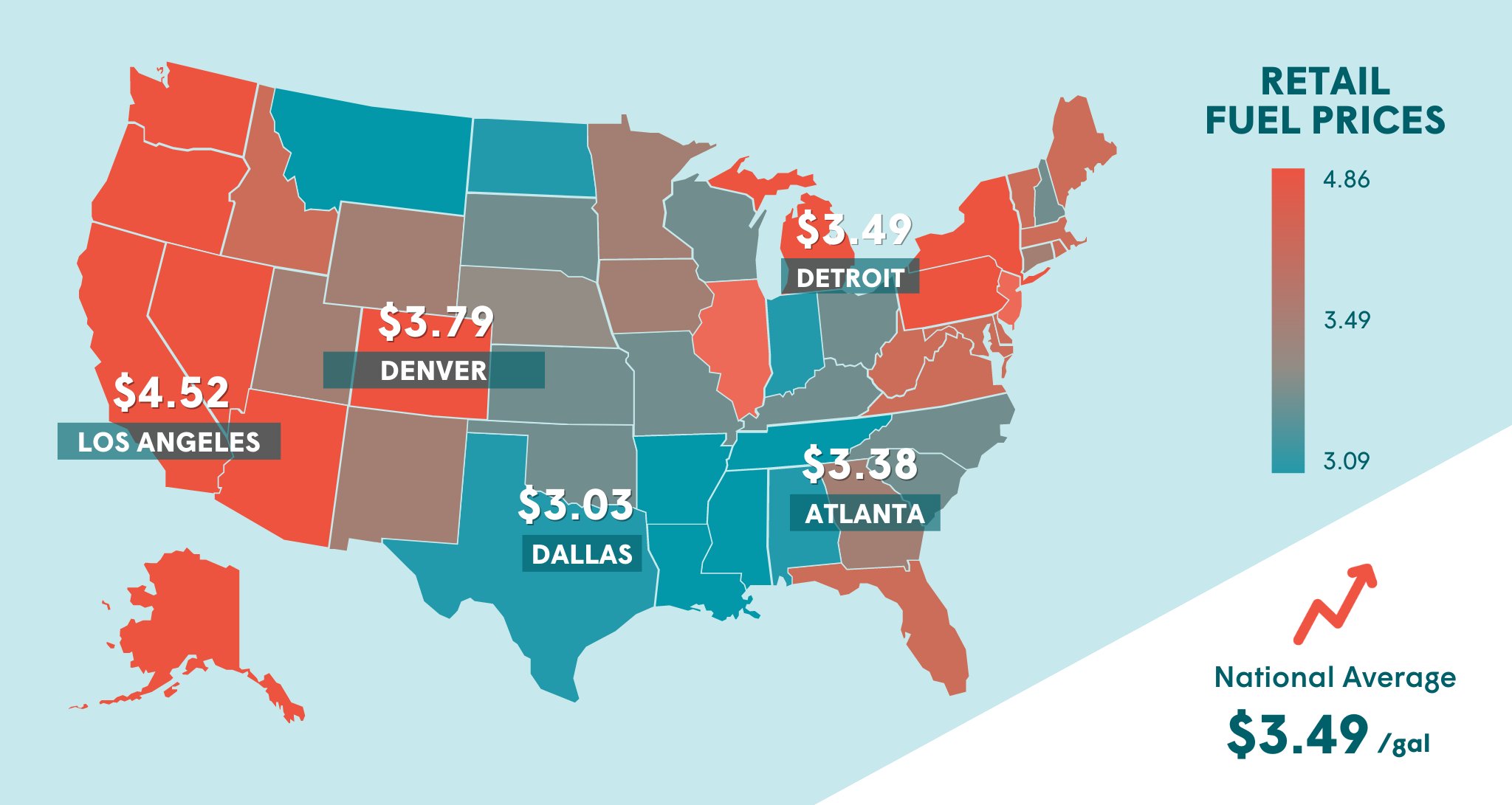COD Oil Prices Long Island: Your Guide to Transparent and Affordable Prices
Wiki Article
Understanding the Fluctuating Oil Rate: A Comprehensive Guide
Recognizing the Fluctuating Oil Rate: A Comprehensive Overview is a beneficial source for any individual seeking to acquire understandings into the complex world of oil prices. In a period where oil markets are constantly evolving, it is important to comprehend the elements that drive price fluctuations.Variables Impacting Oil Costs
Elements affecting oil rates depend on an intricate interaction of economic, geopolitical, and ecological aspects. The economic variables consist of supply and demand characteristics, market supposition, and the toughness of the worldwide economy. When need for oil exceeds supply, rates have a tendency to rise, whereas when supply goes beyond demand, prices often tend to fall. Market supposition can likewise have a significant influence on oil prices, as capitalists and traders try to anticipate future rate motions based upon various aspects such as political occasions or modifications in international financial conditions. In addition, the overall stamina of the international economic climate can affect oil costs, as a robust economic climate typically causes raised demand for oil.Geopolitical elements likewise play an essential role in oil cost changes. Political events such as wars, sanctions, and disputes can interrupt oil supply from major creating countries, causing rate volatility. In addition, geopolitical stress in vital oil-producing areas, such as the Center East, can produce uncertainty and enhance the risk premium on oil costs (fuel oil prices long island).
Environmental variables, specifically policies associated with environment modification and energy transition, are increasingly influencing oil prices. Measures focused on minimizing greenhouse gas discharges and promoting renewable resource sources can lower the demand for oil, consequently putting downward stress on costs. In addition, ecological disasters or laws can interrupt oil manufacturing and transport, affecting prices in the short-term.
Global Supply and Need
The current state of global supply and demand for oil dramatically impacts its price. When supply goes beyond demand, oil costs have a tendency to lower as there is an unwanted of oil readily available in the market.Several elements influence worldwide supply and demand for oil. Economic growth is a significant driver of oil demand, as enhanced economic activity leads to higher energy intake. Factors such as changes in transportation, populace, and automation additionally influence oil need. On the supply side, geopolitical occasions, all-natural calamities, and manufacturing decisions made by major oil-producing nations can impact worldwide supply. As an example, conflicts in oil-producing regions can disrupt manufacturing and bring about provide shortages.

In current years, the COVID-19 pandemic has actually had a significant influence on worldwide supply and demand for oil. Lockdown procedures and take a trip limitations have actually led to a reduction in oil demand, leading to a surplus in supply and a sharp decline in oil rates. As the globe starts to recoup from the financial and pandemic activity resumes, oil demand is expected to enhance, potentially resulting in an increase in oil prices.
Geopolitical Events and Oil Rates
Geopolitical occasions play a critical duty in forming the changing rates of oil. The international oil market is extremely sensitive to geopolitical tensions, problems, and occasions that can interrupt the supply and demand characteristics. Any kind of political instability or dispute in significant oil-producing regions has the possible to influence oil costs considerably.For example, when geopolitical stress increase in the Middle East, which is a major oil-producing region, it can lead to problems regarding supply disruptions. This can create a boost in oil prices as investors and financiers expect prospective disruptions in oil manufacturing and transportation.
In a similar way, political decisions and activities taken by major oil-producing nations can also influence oil prices. As an example, when OPEC (Organization Homepage of the Oil Exporting Countries) members consent to cut manufacturing, it can result in lowered supply and as a result greater oil costs. Alternatively, when OPEC chooses to raise manufacturing, it can lead to an excess in the market and a subsequent decline in oil prices.
Furthermore, geopolitical occasions in significant oil-consuming countries can likewise affect oil costs. Economic and political growths in countries like China, the United States, and Europe can impact oil need, consequently impacting costs.
Influence of Market Speculation
Proceeding from the previous subtopic, the impact of market conjecture on oil rates can not be underestimated. Market speculation refers to the process of capitalists and investors making predictions regarding future oil prices based on various elements such as supply and demand characteristics, geopolitical occasions, and financial indications. These suppositions can have a significant influence on the price of oil in the short term.
Furthermore, market conjecture can affect oil rates by shaping market sentiment. If speculators believe that oil costs will increase, they may take part in getting tasks, bring about a rise in prices. Alternatively, if they prepare for a decrease in prices, they might offer their settings, driving rates down.
Nevertheless, it is very important to note that while market speculation can have temporary effects on oil costs, it is not the single factor of long-lasting cost trends. Fundamental factors, such as changes in supply and need fundamentals, ultimately drive the total instructions of oil costs.
Comprehending Price Volatility
Market speculation plays a critical function in understanding the cost volatility of oil. Rate volatility describes the significant and quick modifications in the price of a commodity, such as oil, over a brief period. It is affected by different variables, consisting of supply and demand characteristics, geopolitical tensions, economic indications, and market belief. However, market supposition adds an additional layer of intricacy to price volatility.Conjecture takes place when financiers and investors sell or acquire oil contracts based upon top article their assumptions of future cost activities. These speculators do not have a direct passion in the physical delivery of the commodity however purpose to benefit from rate fluctuations. Their actions can magnify price movements and add to boosted volatility. When speculators prepare for an increase in oil costs, they get huge quantities of oil agreements, increasing rates. Conversely, when they expect prices to decline, they offer their settings, placing down stress on rates.
The effect of market speculation on oil price volatility is a topic of recurring discussion. Doubters argue that excessive supposition can bring about market distortions and rate bubbles, while others compete that speculators supply liquidity and improve market effectiveness. Increasing and managing speculative activities openness in oil futures markets are actions that policymakers have actually taken into consideration to alleviate extreme volatility.
link
Conclusion
In conclusion, comprehending the varying oil cost calls for an analysis of numerous elements. International supply and demand, geopolitical occasions, and market speculation all play substantial roles in shaping oil rates.Understanding the Fluctuating Oil Cost: A Comprehensive Guide is a beneficial resource for any individual looking for to gain insights right into the intricate world of oil costs (cheap oil prices long island). When demand for oil goes beyond supply, rates tend to increase, whereas when supply surpasses need, rates tend to fall. When supply surpasses need, oil rates often tend to decrease as there is an unwanted of oil available in the market. Speculators can enhance cost motions by taking huge placements in oil futures contracts, which are agreements to offer or acquire oil at a fixed cost in the future. When speculators prepare for a rise in oil rates, they buy large quantities of oil contracts, driving up prices
Report this wiki page